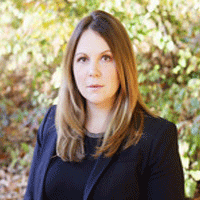Emergency Fund Calculator: Find Out Your Ideal Safety Net
Emergency Fund Calculator
Dealing with an emergency, such as losing your job or unexpected car repair, is stressful enough. It’s even worse when you don’t have enough money to overcome that difficult time. An essential move in intelligent personal finance is to build an emergency fund.
It can save you from financial ruin and help alleviate some of the stress involved.
Here’s how you can build an emergency fund and how much money should be in your account.
How Much to Keep in an Emergency Fund
The amount of money you should keep in an emergency fund depends on your monthly expenses.
To calculate how much money you should have, start by looking at your monthly costs for necessary expenses, such as:
- Housing expenses — Your emergency fund should include your monthly rent or mortgage payment, property taxes, and homeowners or renter’s insurance.
- Food — Consider the amount of money you spend each month on food at home. This doesn’t include eating out or extravagant dinners.
- Utilities — Average the amount you spend per month on utilities. This might include electric, gas, water, sewer, trash, and recycling.
- Insurance — Look at the money you pay for medical, dental, and vision insurance, plus any life or disability insurance. If you lose your job, you might be eligible for COBRA insurance through your previous employer, so factor in this monthly expense.
- Transportation — Whether you take public transportation or own a car or two, you must tally up what you spend each month. This might include a train, bus, or subway ticket or your monthly car payment plus gas, essential car maintenance, and car insurance.
- Personal expenses include your household supplies, pet expenses, childcare costs, clothing, haircuts, and even alimony or child support.
- Debt – Factor in payments for credit cards, student loans, or any other personal loans you might have. In an emergency, you don’t want your credit score to be hit if you can’t pay the minimum monthly payment.
Financial experts advise having at least 3 to 6 months of living expenses in your emergency fund.
If you are conservative and want to be super safe, keep as much money in your emergency fund that makes you feel safe.
Ideal Size of an Emergency Fund
| To start… | Ideal goal… | Super safe… |
|---|---|---|
| $1,000 | 3-6 months of essential expenses | 12 months of expenses |
When does it make sense to have a more enormous emergency fund?
While the standard advice is to have 3 to 6 months of living expenses, you might even consider an emergency fund that’s worth 12 months of essential expenses if your job/role tends to be more challenging to find, you have income that fluctuates (common for freelancers), or you are approaching retirement (or retired).
A sample emergency fund
To provide a rough idea of what you’d need in an emergency fund, we used the Bureau of Labor Statistics data.
According to 2023 data, the average American spent $4,778 on food at home, $12,147 on shelter, and $3,611 on health insurance.
Based on these numbers, these are examples of emergency funds that the average American should have:
- Three months of living expenses: $6,536
- Six months of living expenses: $13,072
- 12 months of living expenses: $26,145
Why Do You Need One?
The likelihood of tapping into your emergency fund at one time or another is almost guaranteed.
Unfortunately, anything can happen, no matter how carefully you plan.
Having the right amount of money keeps an emergency from ruining your financial situation.
Think of it this way — what if you lost your job and couldn’t find a new one for several months or need to spend $10,000 on a leaky roof?
An emergency fund is an insurance policy for yourself without a high premium.
Where Should You Keep an Emergency Fund?
Although it’s good to have the money readily accessible, you should keep it anywhere that doesn’t tempt you to withdraw or spend it.

Every American deserves an opportunity to build savings.
Banks should offer savings accounts for free — no maintenance fee and no minimum monthly balances — as a cost of doing business. These accounts should be linked to checking accounts that meet Bank On National Account Standards.
Online savings accounts
The last thing you want to do when saving is pay monthly banking fees.
An online savings account is a safe and secure way to keep your money; you’ll even earn a little interest.
Online banks offer traditional bank services, but because they don’t pay for brick-and-mortar bank branches, these savings are often passed on to customers.
Here are some of the expected benefits of opening a savings account with an online bank:
- No monthly maintenance fees
- No minimum balance
- Free online and mobile banking
- Ability to transfer money between external and internal accounts
- Member FDIC
Find the best rates
Unlock exclusive savings rates and gain access to top-tier banking benefits.
Index funds
If you’re looking to grow your money and are comfortable with investment accounts, you might want to consider an index fund.
They’re easy to open with a mutual fund company or brokerage firm. As with banking or investment decisions, it pays to shop around since fees and services vary.
An index fund invests your money in all the stocks, known as securities, in a specific index, such as the S&P 500 or the Dow Jones.
Each index is made up of different securities.
For example, if you choose to put your emergency fund in an S&P 500 index fund, you should expect your money to mirror the performance of the S&P 500.
Index funds are ideal for a long-term investment.
Although you can quickly access your money, ideally, you park it there for an extended period.
Since savings accounts do not offer very high-interest rates, an index fund typically will earn you a higher return on your investment. Over the long haul, the difference can add up.
You should expect to pay fees associated with having an index fund, but these fees are lower than hiring a fund manager or financial advisor.
If you’re fortunate to have a large amount of money saved in your emergency fund, you might even qualify for lower fees.
Money market funds
A money market fund is a low-risk, fixed-income mutual fund that can be quickly accessed in case of an emergency.
Depending on the specific fund, it may offer a higher return than some savings accounts.
Some money market funds have higher minimum balance requirements, which would eliminate them as options for emergency funds.
How to Build an Emergency Fund
Once you have determined how much money your emergency fund needs, you can set a savings goal.
Set a monthly savings goal.
Setting aside the desired money to reach your goal might not always be feasible.
Save as much as possible without defaulting on current bills or loans.
Once you determine how much you can save per month and the type of account you will use, look into direct deposit options.
“Employers can help by offering split direct deposit of paychecks and incentives for workers who use it to make savings deposits via payroll deduction,” added Mathieu Despard, Associate Professor of Social Work at the University of North Carolina, Greensboro.
This is often a great option because the money will be deposited automatically into a separate account, and you don’t even “miss” it from your regular banking account.
If this is not an option, see if you can set up recurring transfers from your main banking account to your emergency fund.
Add any extra money to the account.
Being diligent about saving money might be easier than you think. Consider taking these extra steps to reduce spending and bump up your emergency fund.
- Tax refund — Deposit your tax refund directly to your emergency fund account. You won’t even miss out on this money since it’s almost like you never had the money in the first place.
- Save your change — Keep a large jar in a convenient place you walk by daily. Deposit any change you have at the end of the day and watch the jar fill up. Once the pot is full, deposit that money into your account and start over again.
- Cut expenses — A daily Starbucks habit or an HBO subscription might not seem like a big deal, but over time, this money could be better spent, or in this case, saved. For example, starting your morning with a $5 latte adds up to $1,825 yearly! Consider replacing that $5 coffee with a $1 coffee from the corner bodega, and you can deposit an extra $1,500 a year into your emergency fund.

To save money, people need financial slack — monthly income that exceeds monthly expenses.
Many Americans struggle to save due to housing, medical, childcare costs, and student loan payments.
Policies that could help people save — especially those with limited income — include raising the federal minimum wage, making the additional Child Tax Credit permanent, expanding the Earned Income Tax Credit, universal child care, paid leave for all workers, universal health coverage, medical debt cancellation, and student loan forgiveness.
Conclusion
Once you’ve reached your goal and have a comfortable amount of money in your emergency fund, having an additional savings account for more enjoyable things, like vacations, a special night out, or a new car, is a good idea.
With financial security comes peace of mind, and that is priceless.
Ideally, you’ll never need to tap into your emergency fund, but if you do, you’ll be glad it’s there.

